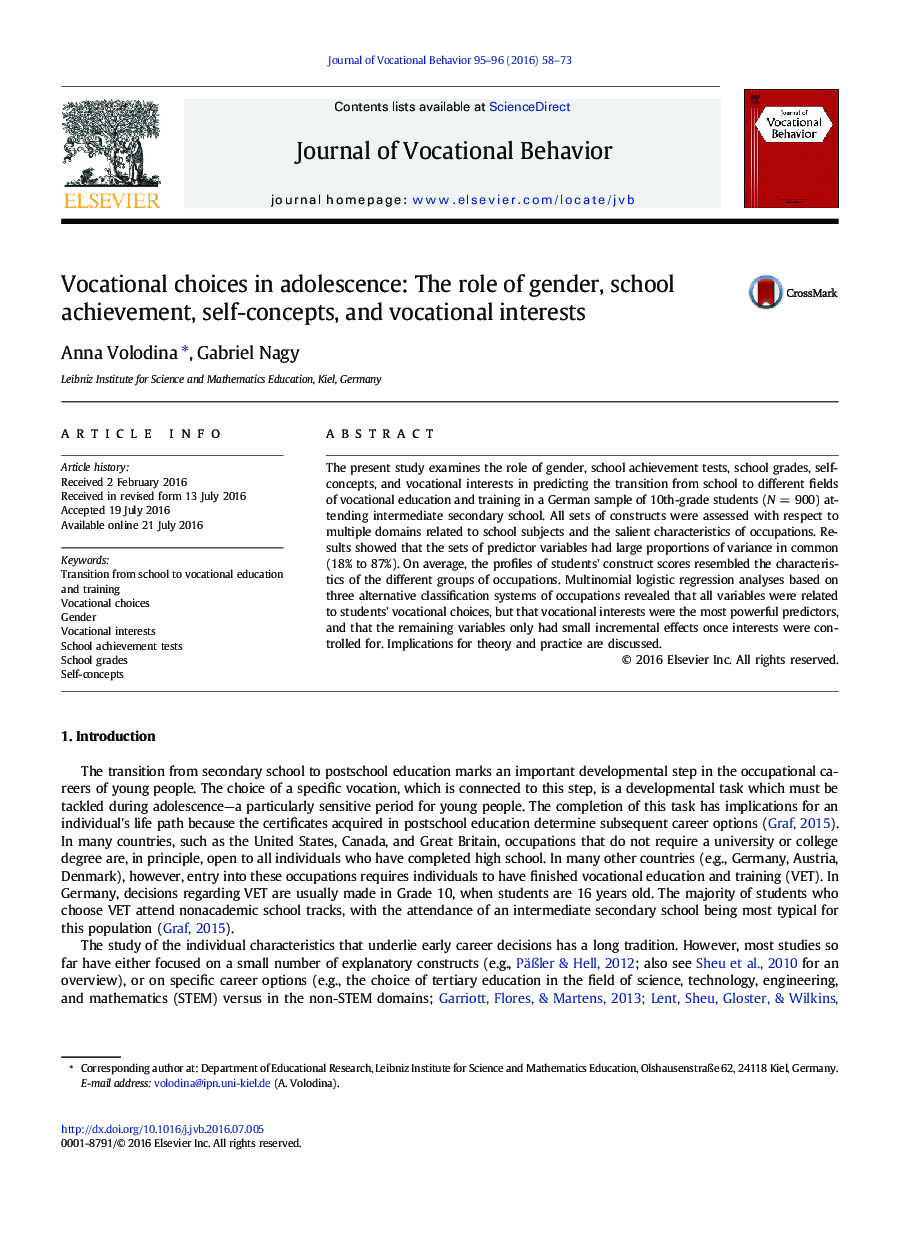| Article ID | Journal | Published Year | Pages | File Type |
|---|---|---|---|---|
| 886708 | Journal of Vocational Behavior | 2016 | 16 Pages |
•The role of gender, school achievement, self-concepts, and vocational interests in the transition to VET is examined.•The sets of predictor variables had large proportions of variance in common.•The profiles of students' construct scores resembled the characteristics of different groups of occupations.•All variables under study were related to students' vocational choices.•Vocational interests emerged as the most powerful predictors of the vocational choices.
The present study examines the role of gender, school achievement tests, school grades, self-concepts, and vocational interests in predicting the transition from school to different fields of vocational education and training in a German sample of 10th-grade students (N = 900) attending intermediate secondary school. All sets of constructs were assessed with respect to multiple domains related to school subjects and the salient characteristics of occupations. Results showed that the sets of predictor variables had large proportions of variance in common (18% to 87%). On average, the profiles of students' construct scores resembled the characteristics of the different groups of occupations. Multinomial logistic regression analyses based on three alternative classification systems of occupations revealed that all variables were related to students' vocational choices, but that vocational interests were the most powerful predictors, and that the remaining variables only had small incremental effects once interests were controlled for. Implications for theory and practice are discussed.
